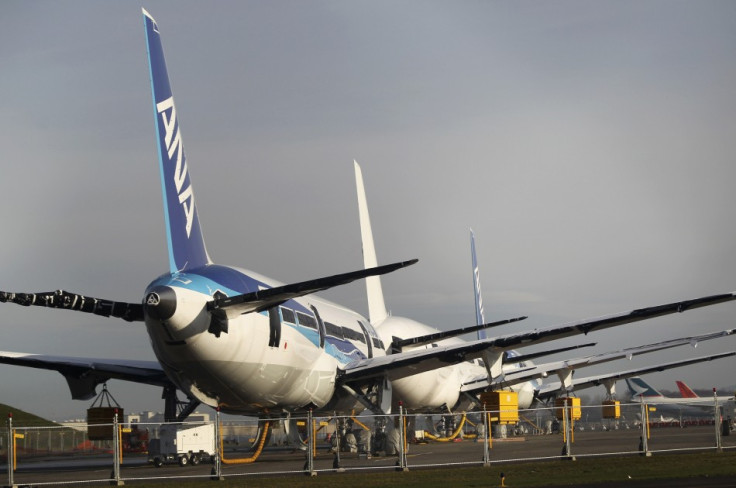Boeing Seeks Regulator Permission for Dreamliner Test-Flights
Boeing's request is being considered by the Federal Aviation Administration

Boeing has requested US regulator permission to conduct test flights on its crisis-stricken Dreamliner aircraft, a sign that the jet-maker could be making progress in its efforts to fix the problem.
Boeing's entire 787 jets owned by airlines across the globe had been taken out of service in the previous month after battery-related issues raised safety concerns. A Japan Airlines (JAL) carrier that was parked in Boston had caught fire while an All Nippon Airways (ANA) jet was forced to make an emergency landing after smoke was detected in the cabin and cockpit.
The company's request is being considered by the Federal Aviation Administration, according to a BBC report that cited a Boeing spokesman. Analysts suggest that the regulators may grant the permission.
"This is a clear indication that Boeing has identified the problem and may even have found a solution," Aerospace analyst Chris de Lavigne from Frost & Sullivan told BBC.
"The logical step is to conduct test flights and see if the solution does work."
Dreamliner's sophisticated battery, manufactured by the Japanese company GS Yuasa, had come under regulator's scrutiny after the JAL and ANA incidents. But following investigations, Japanese transport ministry confirmed that the battery manufacturing process was in line with the required quality standards.
Boeing, on its part, had conducted its own probe into the matter and defended its battery technology. The company's chief executive Jim McNerney had said that "nothing that we have learned has told us that we have made the wrong choice on the battery technology".
This took the inspections beyond the battery itself, but gave rise to concerns that the jets could be grounded for an extended period of time as regulators struggle to find conclusive answers to the problems.
Some industry experts suggest that Boeing's decision to seek test-flight permission may be aimed at establishing that the issues that caused 787 groundings were unique to the Japanese aircrafts. But they warn that authorities may not allow the flights back in the air until the investigation is complete.
Speaking to BBC, Siva Govindasamy of Flightglobal notes that "the regulators may want more rigorous tests before they allow the planes to take off.
"And the customers, as well as passengers, will need to be fully satisfied that the issue has been resolved before they start to fly the 787s again".
© Copyright IBTimes 2025. All rights reserved.





















